Aquarium Audio
Hear Our Latest Aquacasts

Leslie Harris - Hitchhiking Aliens: Unexpected Consequences of the Japan Tsunami
Hitchhiking Aliens: Unexpected Consequences of the Japan Tsunami
Aquacast recorded at the Aquarium on May 7, 2013. After the earthquake and resulting tsunami that struck Japan in 2010, ocean currents and wind brought debris across the Pacific Ocean to the shores of the Pacific Northwest of the United States. Learn from Leslie Harris about the non-native plant and animal species attached to the debris that hitched a ride to our shores.

William Sargent
Beach Wars
Aquacast recorded on April 2, 2013. William Sargent spoke about Atlantic coast storms and shared compelling stories from his book Beach Wars.

Dean Wendt
Scientists, Managers, and Fishermen Working Together to Manage California’s Ocean Resources
California recently completed the designation of a new network of marine protected areas (MPAs) along its 800-mile coastline. The process has been heralded as a landmark event in marine resource management and conservation.

Charles Moore
Plastic Ocean: How Bad Is It?
In 1997 Captain Charles Moore discovered plastic in the ocean in the North Pacific Subtropical Gyre. Dubbed the Great North Pacific Garbage Patch, this estimated three million tons of plastic debris is still growing in the Northeast Pacific between Hawaii and the West Coast. He spoke at the Aquarium on March 6, 2012.

Bruce Perry
Southern California’s Bight and Borderland: Where the Dynamic Ocean Meets Plate Tectonics
In his lecture on February 7, 2012, Bruce Perry covered the evolution of the Continental Borderland and its effects on the current circulation, wave action, and biology of the Southern California Bight (the Southern California coast running from Point Conception to Mexico). Perry holds a BS and MS in geology, teaches oceanography and geology at local community colleges and universities, and has extensive on-the-job training in physical oceanography.

Mark Jackson
Atmospheric Rivers, Floods, and Climate Change
In his talk with Jeanine Jones on January 25, 2012, Jackson discussed recent scientific discoveries are revealing new information about atmospheric rivers—the concentrated streams of moisture that originate over the Pacific Ocean and cause major winter floods in California. Jackson is the meteorologist in charge for the National Weather Service serving Los Angeles, Ventura, Santa Barbara, and San Luis Obispo Counties.

Jeanine Jones
Atmospheric Rivers, Floods, and Climate Change
In her talk with Mark Jackson on January 25, 2012, Jones discussed recent scientific discoveries are revealing new information about atmospheric rivers—the concentrated streams of moisture that originate over the Pacific Ocean and cause major winter floods in California. Jones is the interstate resources manager for the California Department of Water Management.

The Invisible Ocean
Is the ocean’s beauty in the eye of the beholder?
The largest geographic feature of our planet is the ocean, almost inconceivable in size to the imagination. It is in this vast environment that microscopic plants and animals make our planet habitable.

Richard Feely
Ocean Acidification: Implications for West Coast Ecosystems
Dr. Richard Feely, who spoke on May 23, 2011, is a senior scientist at the National Oceanic and Atmospheric Administration Pacific Marine Environmental Laboratory in Seattle. He also holds an affiliate full professor faculty position at the University of Washington’s School of Oceanography. His major research areas are carbon cycling in the ocean and ocean acidification processes.

James Lindholm
Mission to Aquarius: A Journey to Inner Space
Dr. James Lindholm, who spoke at the Aquarium on April 27, 2011, is the James W. Rote Distinguished Professor of Marine Science and Policy and the founder and director of the Institute for Applied Marine Ecology at California State University, Monterey Bay. His research interests include the landscape ecology of fishes, the recovery of seafloor habitats following the cessation of fishing activity, and the design and efficacy of marine protected areas.

Peter Ward
The Flooded Earth: Our Future in a World Without Ice Caps
Peter Ward, who spoke at the Aquarium about the impacts of climate change on June 16, 2011, is a professor of biology and space sciences at the University of Washington in Seattle. His books include "Rare Earth: Why Complex Life is Uncommon in the Universe" and "The Medea Hypothesis: Is Life on Earth Ultimately Self-Destructive"?

Clark Snodgrass
Measuring the Oceans from Space
Clark Snodgrass, who spoke at the Aquarium on July 6, 2011, has twenty-five years of experience in aerospace systems engineering and development spanning numerous space programs at Northrop Grumman Aerospace Systems. He currently serves as the Northrop Grumman director of System Engineering, Integration, Test and Operations for the National Polar-orbiting Operational Environmental Satellite System.

Alexander “Sandy” MacDonald
Visualizing the Science of Our Earth
Dr. Alexander "Sandy" MacDonald, the inventor of the National Oceanic and Atmospheric Administration’s Science on a Sphere, spoke at the Aquarium on May 31, 2011. He is the deputy assistant administrator for Laboratories and Cooperative Institutes for the NOAA Office of Oceanic and Atmospheric Research. He also serves as director of the Earth System Research Laboratory in Boulder, Colorado.

William Sager
New Perspectives on Oceanic Volcanism
Dr. Sager is a professor of oceanography at Texas A and M University. His current research efforts are concentrated on geophysical studies of hotspots and ocean plateaus and how they formed and evolved, as well as magnetic anomaly interpretations and the geomagnetic polarity reversal time scale.

Bruce Parker
The Power of the Sea
Dr. Parker is presently a visiting professor at the Center for Maritime Systems at the Stevens Institute of Technology and is the former chief scientist of the National Ocean Service at the National Oceanic and Atmospheric Administration. He has a Ph.D. in physical oceanography from The Johns Hopkins University, a master’s degree in physical oceanography from the Massachusetts Institute of Technology; and a bachelor’s degree in biology and physics from Brown University.

